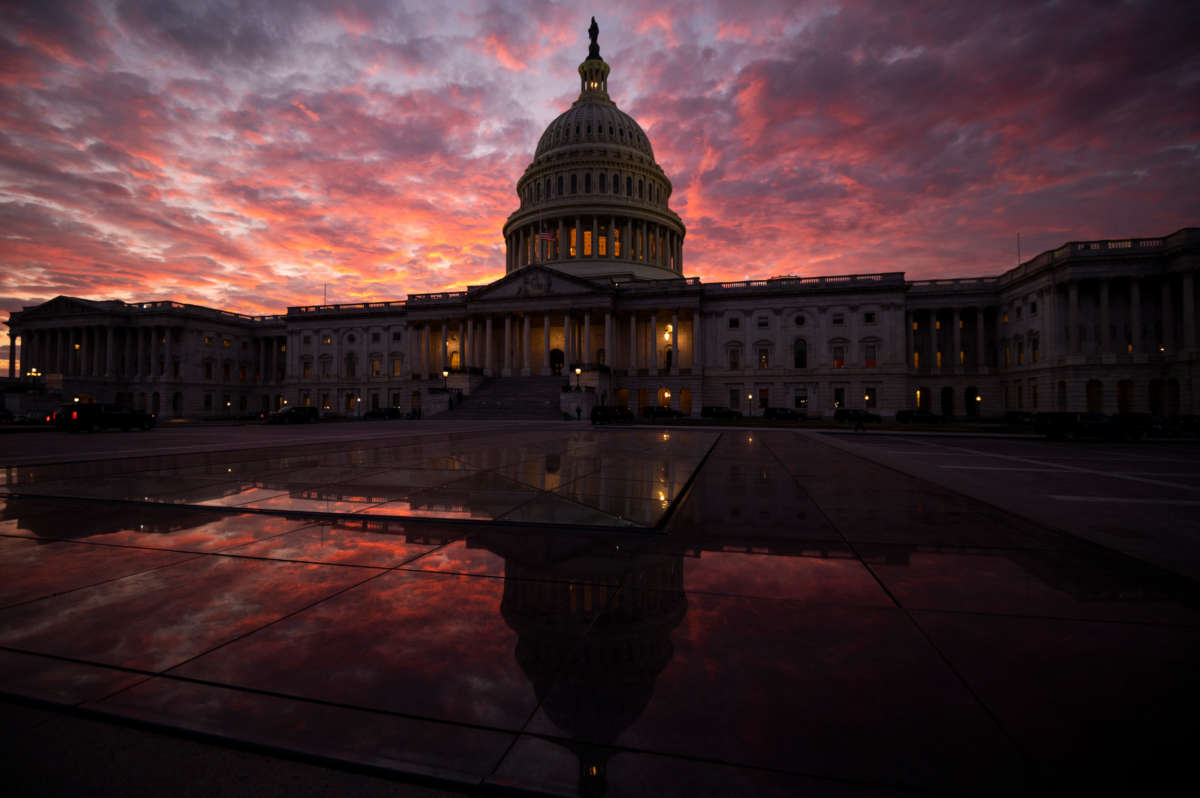Honest, paywall-free news is rare. Please support our boldly independent journalism with a donation of any size.
The total number of competitive seats in Congress appears to be shrinking as states finalize their new maps, a new analysis shows.
According to FiveThirtyEight, of the 335 seats in the House of Representatives that have been redrawn by state legislatures across the U.S. so far, only 27 seats have been deemed competitive. In every district besides those 27, one political party has an advantage of at least five points over the other, making it relatively safe for that party to assume they will win.
There are still 100 districts within nine different states that haven’t been mapped out yet, so it’s possible that the number of competitive seats will go up. But given that most of the remaining states have single-party control in their governorships and legislatures, the competitiveness of the maps will likely only increase slightly, if at all.
Right now, Democrats appear to have more seats leaning toward their advantage, with 163 of the districts drawn so far leaning toward Democratic control, versus 145 districts leaning toward the GOP. However, that will likely change when the remaining 100 seats are redrawn, since five of the nine states that have yet to draw their congressional maps are under Republican control, while only one of the states is controlled by Democratic lawmakers.
The number of competitive districts in the House has diminished significantly over the past decade. Competitiveness was still low ten years ago, but in 2012 there were at least 66 competitive House districts — more than double where things currently stand.
Some of the decreases in competitiveness can’t be helped, as they are due to “clumping” of districts that can’t be drawn any differently after a decennial census occurs. But according to an analysis from The Guardian, “politicians are undoubtedly accelerating the decline in competition by distorting district lines to their advantage,” as elected officials have “made aggressive efforts to change district lines to shore up incumbents, locking in their seats for several more years.”
Polling shows, by wide margins, that most Americans do not want districts drawn in ways that either political party can take advantage of. In an Economist/YouGov survey conducted earlier this month, 63 percent of likely voters said that they support a requirement that their home state’s maps be redrawn by nonpartisan commissions. Furthermore, 58 percent said they believed the Supreme Court should strike down maps that give “lopsided” political advantages to one party over the other.
Only 28 percent of voters in the poll expressed confidence that their district maps were being drawn in a fair way. Thirty-six percent of respondents said that their maps were being drawn unfairly, while another 35 percent said that they couldn’t be sure one way or another.
Media that fights fascism
Truthout is funded almost entirely by readers — that’s why we can speak truth to power and cut against the mainstream narrative. But independent journalists at Truthout face mounting political repression under Trump.
We rely on your support to survive McCarthyist censorship. Please make a tax-deductible one-time or monthly donation.
